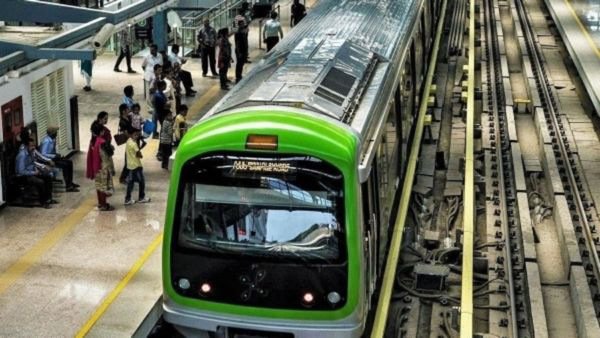Bengaluru’s growing traffic woes and propel the city towards a sustainable future, Karnataka’s Deputy Chief Minister, unveiled a major metro expansion plan that promises to transform urban mobility in the city. By 2026, Bengaluru’s metro network will span an impressive 175 km, a substantial leap from its current coverage, marking a pivotal shift towards modernising the city’s transport infrastructure.
During a press briefing on Wednesday, Chief Minister announced that the first phase of this extensive expansion—30 km of new metro lines—will be completed by 2025, with the entire 175 km network expected to be fully operational by 2026. This development includes the much-anticipated 3.14 km extension of the Green Line from Nagasandra to Madavara, which will begin commercial operations on November 7. The project, which is part of a broader plan to expand Bengaluru’s metro capacity, is expected to ease congestion, reduce carbon emissions, and make daily commuting significantly more efficient.
CM’s statement followed a test ride along the new stretch from Nagasandra to Madavara, during which he emphasised the government’s commitment to providing a reliable and eco-friendly alternative to Bengaluru’s notorious traffic jams. “With the Centre’s approval of the third phase and an investment of Rs 1,130 crore for new trains, we are all set to improve the city’s metro system,” CM said. The new metro lines are expected to accommodate the city’s increasing population and growing demand for public transport. Bengaluru has the highest metro ridership in the country, reflecting the importance of these developments. Moreover, the government is working in collaboration with the National Highways Authority of India (NHAI) to construct key underpasses, such as one at Madavara, and pedestrian infrastructure like a skywalk at Manjunathanagar. These projects, which also include plans for an underpass at Chikkabidarakallu, aim to facilitate smoother travel for commuters.
From a sustainability perspective, the metro expansion will play a critical role in reducing Bengaluru’s carbon footprint. By offering a cleaner, more efficient mode of transport, the metro system is positioned as a key driver of the city’s long-term environmental and economic health. The green initiatives, including the expansion of electric trains, will encourage residents to opt for public transport, thereby contributing to reduced traffic emissions and energy consumption. However, while this expansion holds immense promise, it also brings with it challenges. The construction phase will inevitably lead to temporary disruptions for commuters, with new construction sites and traffic diversions in the short term. Still, the collective optimism surrounding the project is palpable, with citizens hopeful that the long-term benefits of improved air quality, reduced congestion, and faster commute times will make it all worthwhile.



